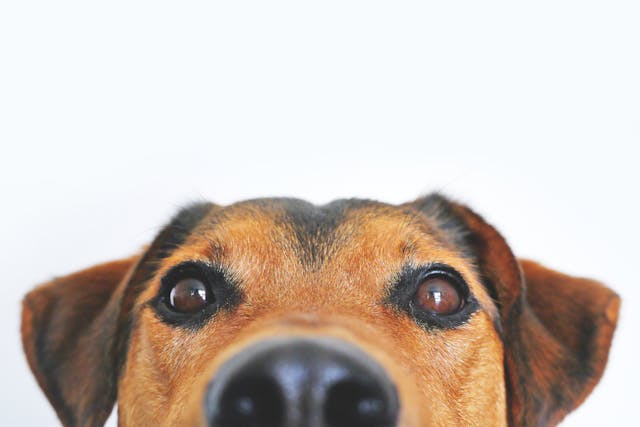Mosquitoes are more than just a nuisance to humans; they can also pose a threat to our furry companions. So, what can mosquito bites cause in cats and dogs? In this blog post, we’ll explore the potential dangers, how to recognize symptoms, and steps you can take to protect your pets from these pesky insects.
What Can Mosquito Bites Cause in Cats and Dogs?
Mosquito bites can be far more than just an itchy annoyance for your pets. For cats and dogs, mosquito bites carry the risk of severe health problems, including heartworm disease, allergic reactions, and skin infections. Let’s dive into these potential issues and why preventing mosquito bites in your pets is crucial.

Heartworm Disease: A Major Concern for Dogs and Cats
Mosquito bites in pets pose a serious risk, especially when it comes to heartworm disease. When a mosquito feeds on an infected animal, it picks up heartworm larvae, which can then be passed on to another host through a single bite. These larvae develop into adult heartworms within the new host, often leading to severe and potentially life-threatening complications.
For dogs, heartworm disease is especially dangerous. The worms can grow up to 12 inches long and reside in the heart, lungs, and blood vessels, causing significant damage over time.
If left untreated, this can result in heart failure, lung disease, and other serious health issues. Symptoms in dogs often include coughing, fatigue, weight loss, and difficulty breathing. Since treatment for heartworm disease is lengthy and costly, prevention is crucial to keep your dog safe.
While heartworm disease is less common in cats, it can still be a concern. In most cases, the heartworms do not reach full maturity in cats, but even immature worms can cause serious damage to the lungs and immune system.
Cats infected with heartworms may exhibit symptoms like coughing, vomiting, difficulty breathing, and lethargy. Unfortunately, cats have no approved treatment for heartworm disease, making prevention even more critical to protect their health.
Allergic Reactions to Mosquito Bites
Another issue to be aware of when considering what mosquito bites can cause in cats and dogs is allergic reactions. Just like humans, pets can have allergic responses to mosquito saliva, which is injected into the skin when the mosquito feeds.
Some dogs may develop heightened allergic reactions to mosquito bites. This can cause swelling, redness, and intense itching, particularly around the face, ears, and nose, where mosquitoes tend to bite. In severe cases, dogs can develop hives or experience anaphylactic shock, though this is rare.
Cats are also susceptible to allergic reactions to mosquito bites, particularly on their nose, ears, and paws. These reactions can lead to red, swollen areas, hair loss, and excessive itching. Cats with mosquito bite hypersensitivity may also develop lesions or scabs, especially if they frequently scratch or bite at the irritated areas.
Skin Infections Caused by Mosquito Bites
In addition to allergic reactions, mosquito bites can also cause secondary skin infections in pets. When a mosquito bites, it leaves behind a small wound. If your pet scratches or bites at the itchy spot, it can break the skin, creating an entry point for bacteria. This can lead to an infection, causing redness, swelling, pus, and discomfort.
Skin infections from mosquito bites are more likely to occur in dogs prone to scratching or sensitive skin. If you notice your dog obsessively licking or scratching a specific area, it could be a sign of an infection. Keeping your dog’s skin clean and preventing excessive scratching is crucial to avoid these infections.
Cats are generally more meticulous about grooming but can still develop skin infections from mosquito bites, especially if they have an allergic reaction that makes them scratch more than usual. Watch for signs of irritation, scabbing, or hair loss, which can indicate an infection developing.
How to Protect Your Pets from Mosquito Bites
Now that we’ve covered what mosquito bites can cause in cats and dogs let’s focus on prevention. Keeping mosquitoes away from your pets is the best way to protect them from the dangers of mosquito bites. Here are some practical steps to reduce your pet’s exposure to mosquitoes.

Use Pet-Safe Mosquito Repellents
There are mosquito repellents specifically designed for cats and dogs. Avoid using human mosquito repellents, as many contain ingredients that can be toxic to pets, such as DEET. Always check with your veterinarian before applying any repellent to your pets to ensure it is safe and effective.
Install Screens and Mosquito Nets
Keep mosquitoes out of your home by using screens on windows and doors. If your pets spend time outdoors, consider using mosquito nets over their sleeping areas or outdoor enclosures to provide extra protection.
Avoid Peak Mosquito Hours
Mosquitoes are most active during dawn and dusk. Try to limit your pet’s outdoor activity during these times to reduce their risk of being bitten.
Remove Standing Water
Mosquitoes breed in standing water, so make sure to eliminate any stagnant water around your home. This includes emptying pet water bowls when not in use, cleaning bird baths, and checking for puddles or other water sources in your yard.
Heartworm Prevention Medication
Since heartworm disease is a major concern for pets, keeping your dog or cat on a year-round heartworm preventative is crucial. These medications are available through your veterinarian and can offer peace of mind that your pet is protected from heartworms and other parasites.
Professional Pest Control
Consider hiring a professional pest control service like proof. for more comprehensive protection. We offer mosquito control solutions that target mosquitoes at the source, reducing the population around your home and minimizing the risk to your pets.
Final Thoughts: Keeping Your Pets Safe

So, what can mosquito bites cause in cats and dogs? From heartworm disease to allergic reactions and skin infections, mosquito bites can pose serious health risks to your pets. Understanding the potential dangers and taking proactive measures to prevent mosquito bites is key to ensuring your furry friends stay healthy and happy.
At proof. Pest Control, we’re committed to helping you protect your pets from pests. With expert mosquito control services, we can help reduce the mosquito population around your home, giving your pets a safer environment to enjoy. Contact us today to learn more about our pest control solutions and how we can help keep your home and pets safe from mosquitoes!

